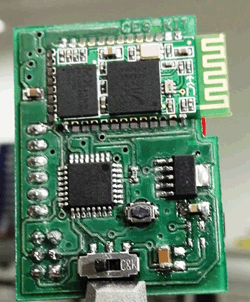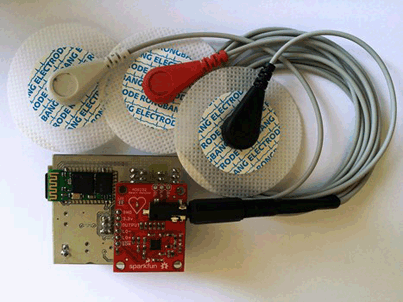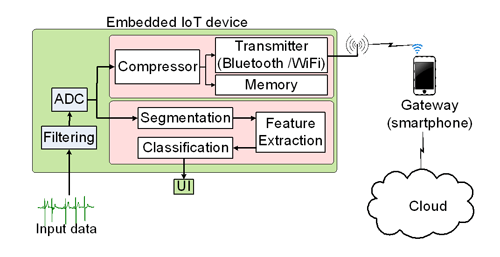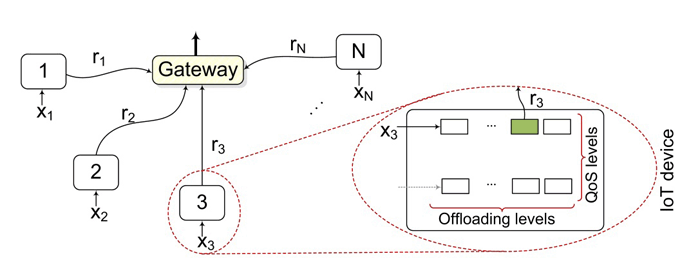Internet of Things (IoT)
Research Projects
Our current focus of research in IoT domain includes several projects whose details are presented in this page.
- IoT-based platforms and prototypes:
In this project, we aim at design and implementation of embedded IoT-based platforms, mainly for healthcare monitoring applications. These platforms equipped with their specific sensors, a microcontroller and a wireless radio (e.g. Bluetooth Low Energy). The collected data is transmitted wirelessly to a smartphone where an Android application receives the data, processes and visualizes the features of interest, and store the data on a Cloud client.
We are currently working on/with the following IoT based platforms:
- An IoT-based ECG monitoring device (collects the heart activity signals)
- A physical activity monitoring device (detects the movements of body)
- An IoT-based insole for smart shoe (detects the force on the foot)
- An IoT-based EEG monitoring device (collects brain activity signals)


- On-board data processing for IoT:
The collected data can be fully or partially processed on the IoT embedded device. The type of operations for on-board processing depends on the IoT application. But it mainly includes novel data compression techniques [1], signal processing, Feature Extraction, and classification (involves machine learning). However, due to the constraints on the capabilities of low-power IoT devices including computation and memory limitations, the on-board processing must be optimized. Hardware and software optimizations are needed to make the on-board processing efficient and affordable. The proposed techniques must consider all three main functions of an IoT device: 1) acquisition, 2) computation, and 3) communication.

Edge computing in IoT systems
IoT systems have a hierarchy which consists of embedded edge devices, smart gateways and other computation or storage layers (e.g. cloud servers) [1]. Considering the other layers would bring more opportunities for increasing the efficiency of the system, and more challenges to manage the system: offloading the computation, allocating the shared resources, binding the devices to gateway, just to name a few [3].

References:
[1] Farzad Samie, Lars Bauer, Jörg Henkel, “An Approximate Compressor for Wearable Biomedical Healthcare Monitoring Systems”, in International Conference on Hardware/Software Codesign and System Synthesis (CODES+ISSS), Amsterdam, The Netherlands, October 4-9, 2015.
[2] Farzad Samie, Lars Bauer, Jörg Henkel, “IoT Technologies for Embedded Computing: A Survey”, in International Conference on Hardware/Software Codesign and System Synthesis (CODES+ISSS), IoT day, Pittsburgh, PA, USA, October 2-7, 2016.
[3] Farzad Samie, Vasileios Tsoutsouras, Sotirios Xydis, Lars Bauer, Dimitrios Soudris, Joerg Henkel, “Distributed QoS Management for Internet of Things under Resource Constraints”, in International Conference on Hardware/Software Codesign and System Synthesis (CODES+ISSS), IoT day, Pittsburgh, PA, USA, October 2-7, 2016.
Contact information:

